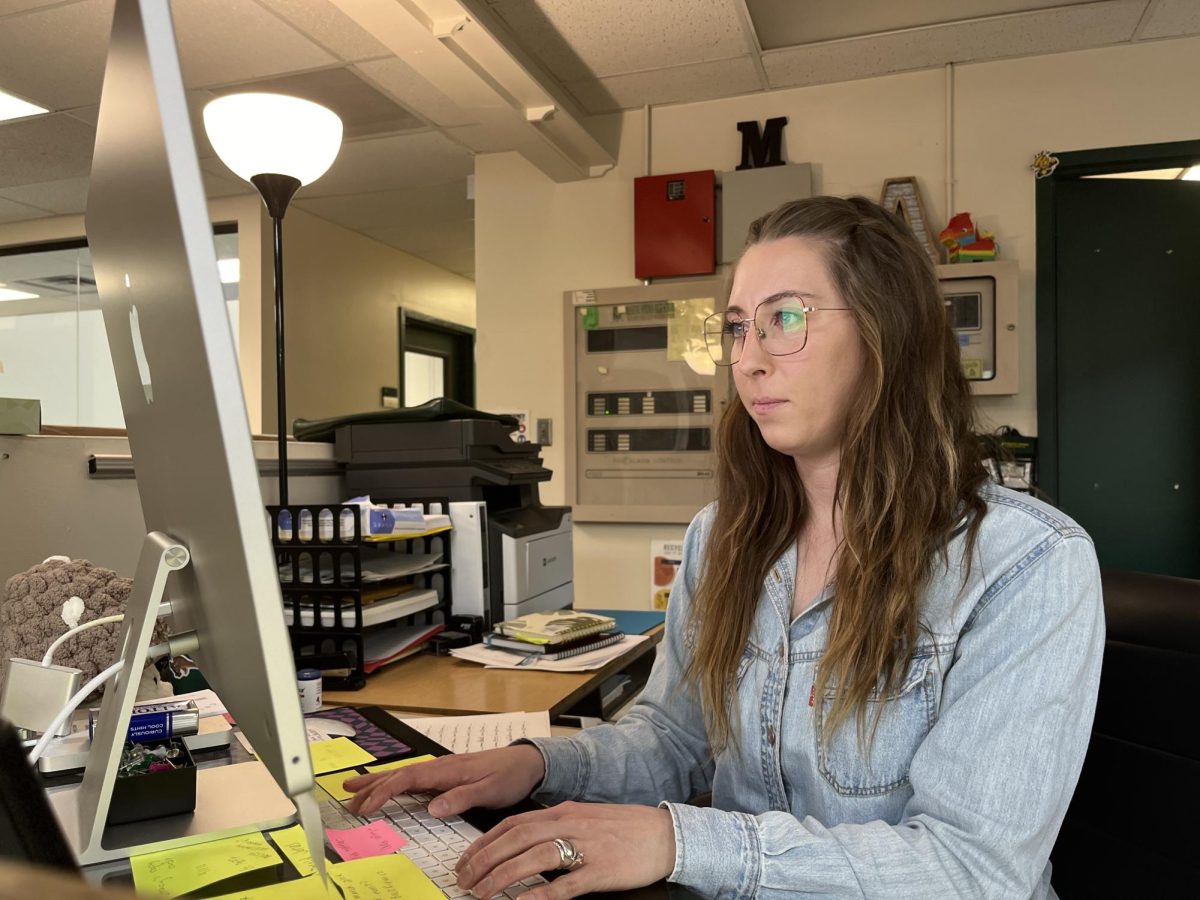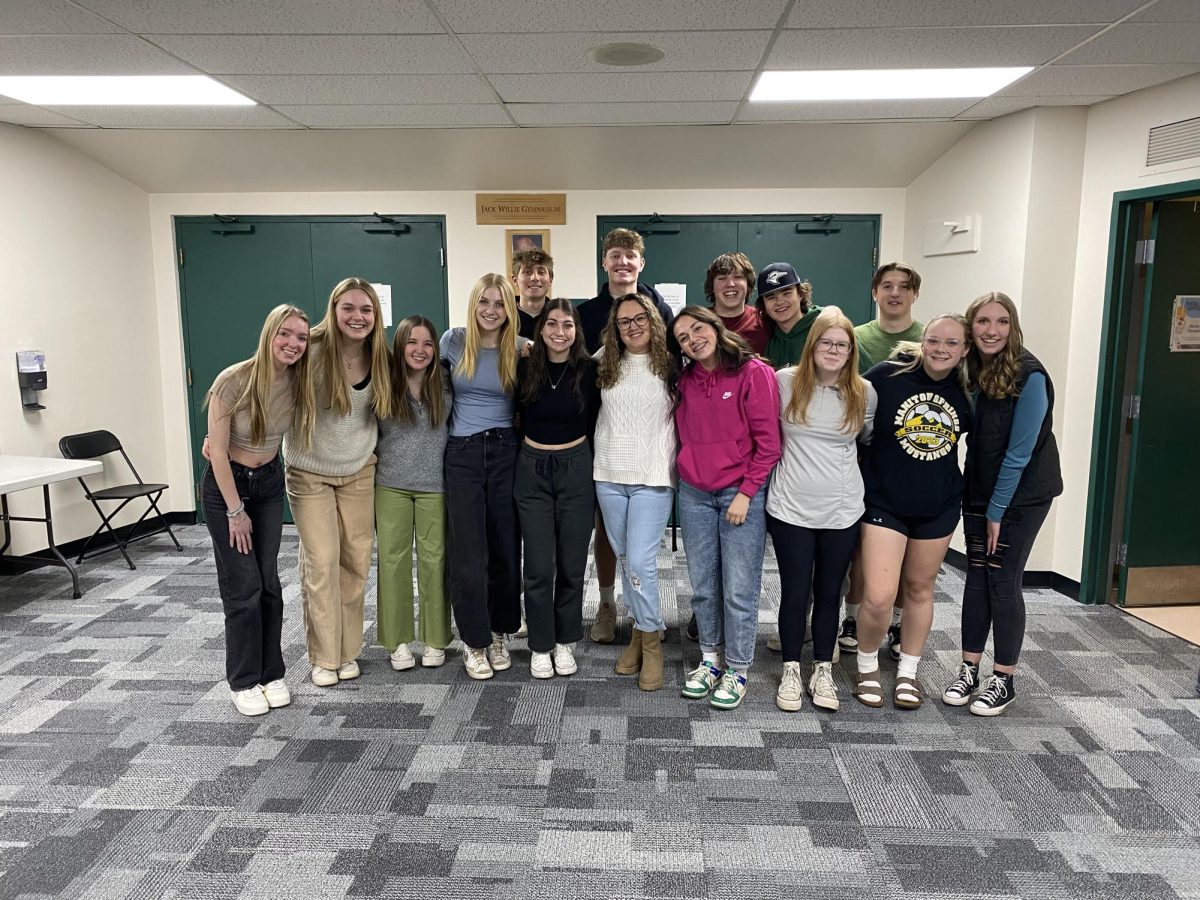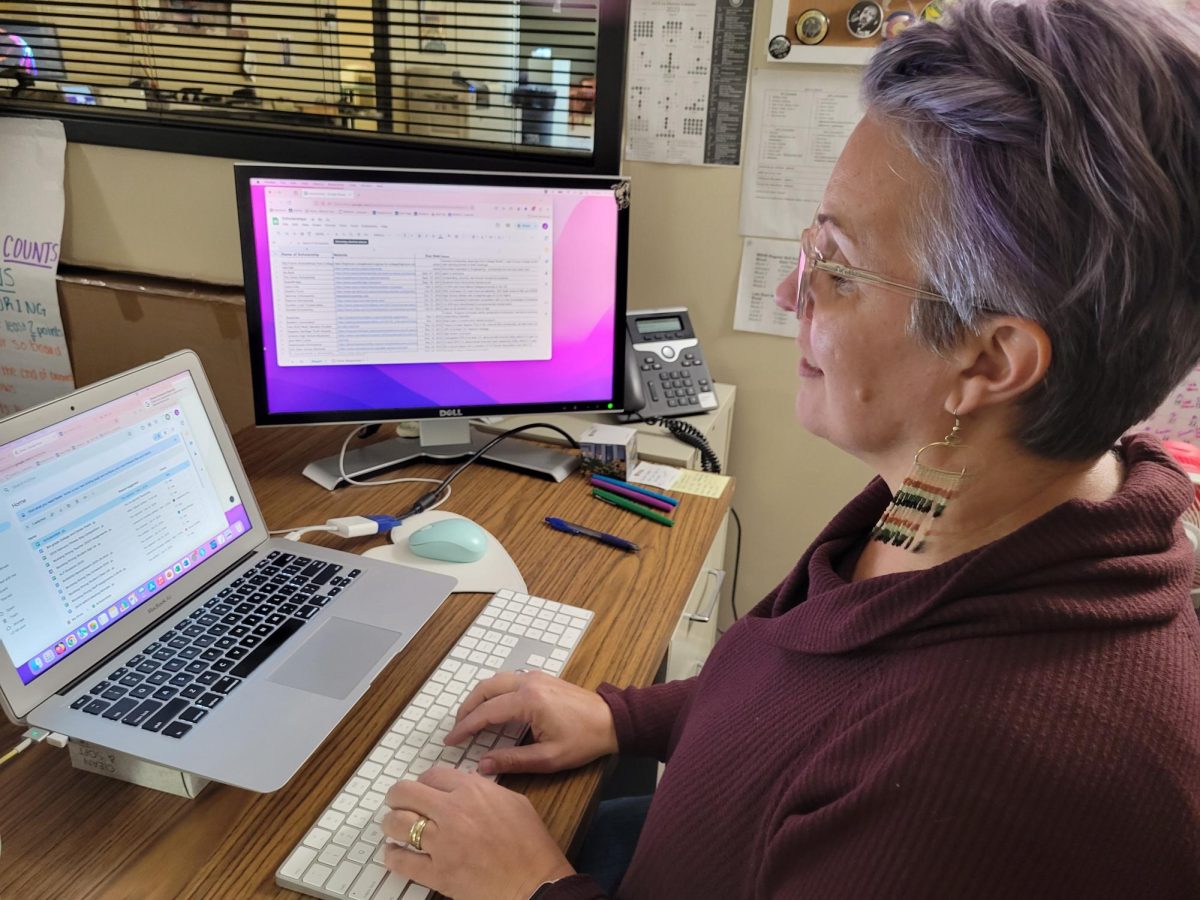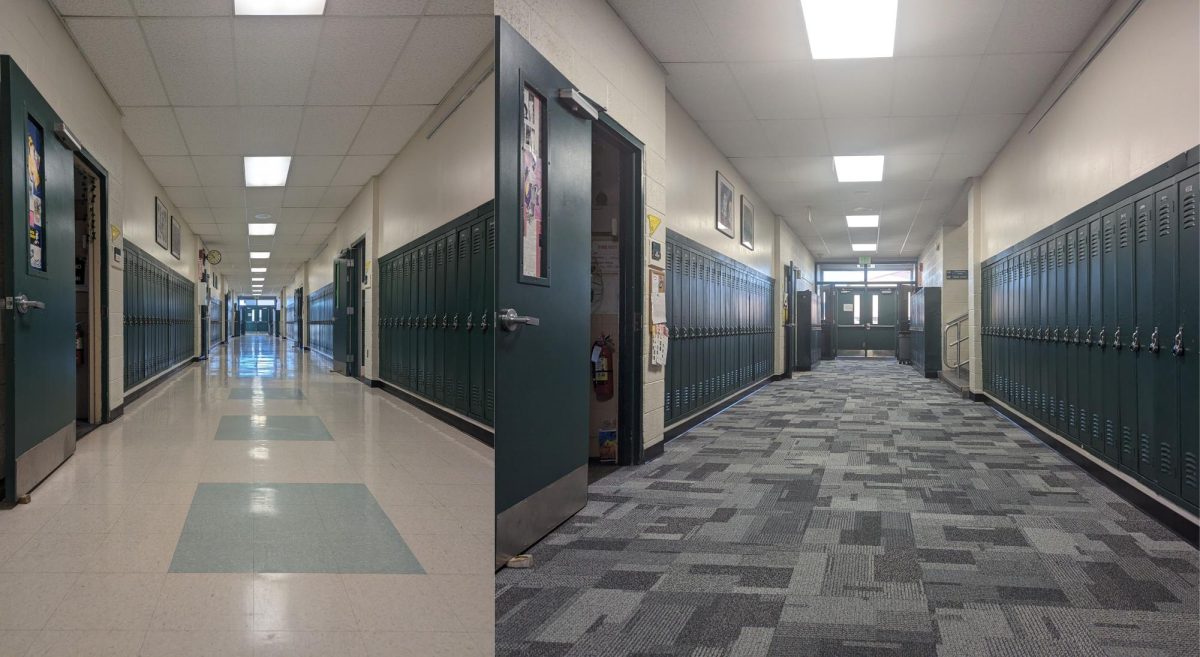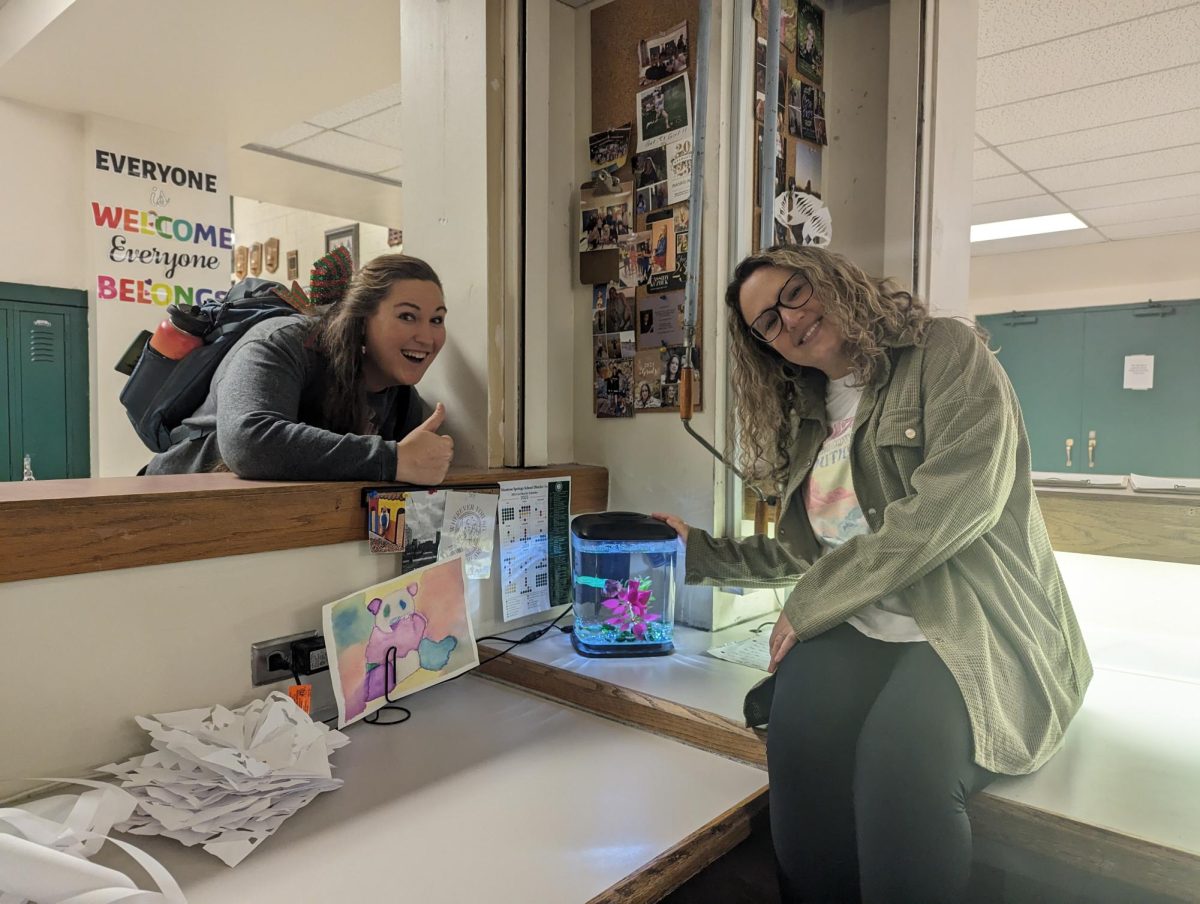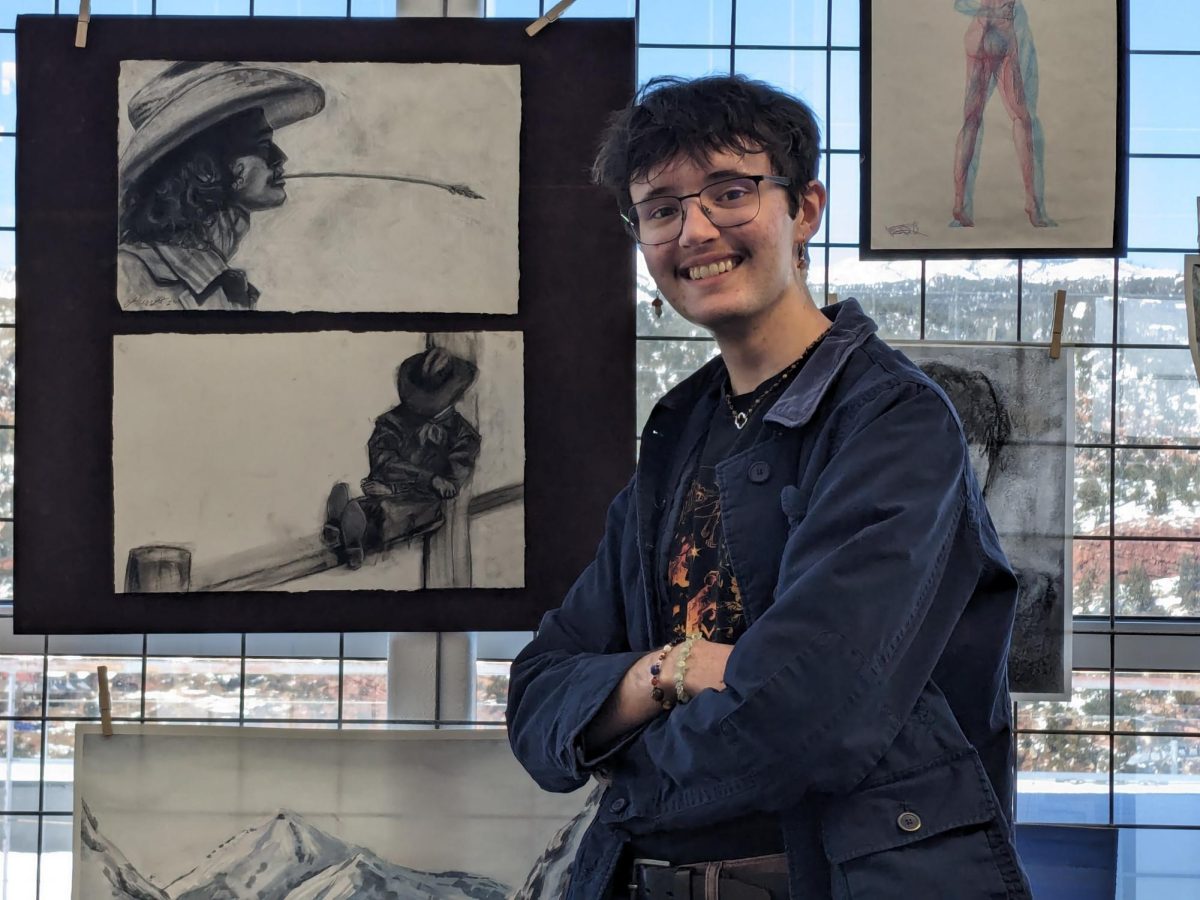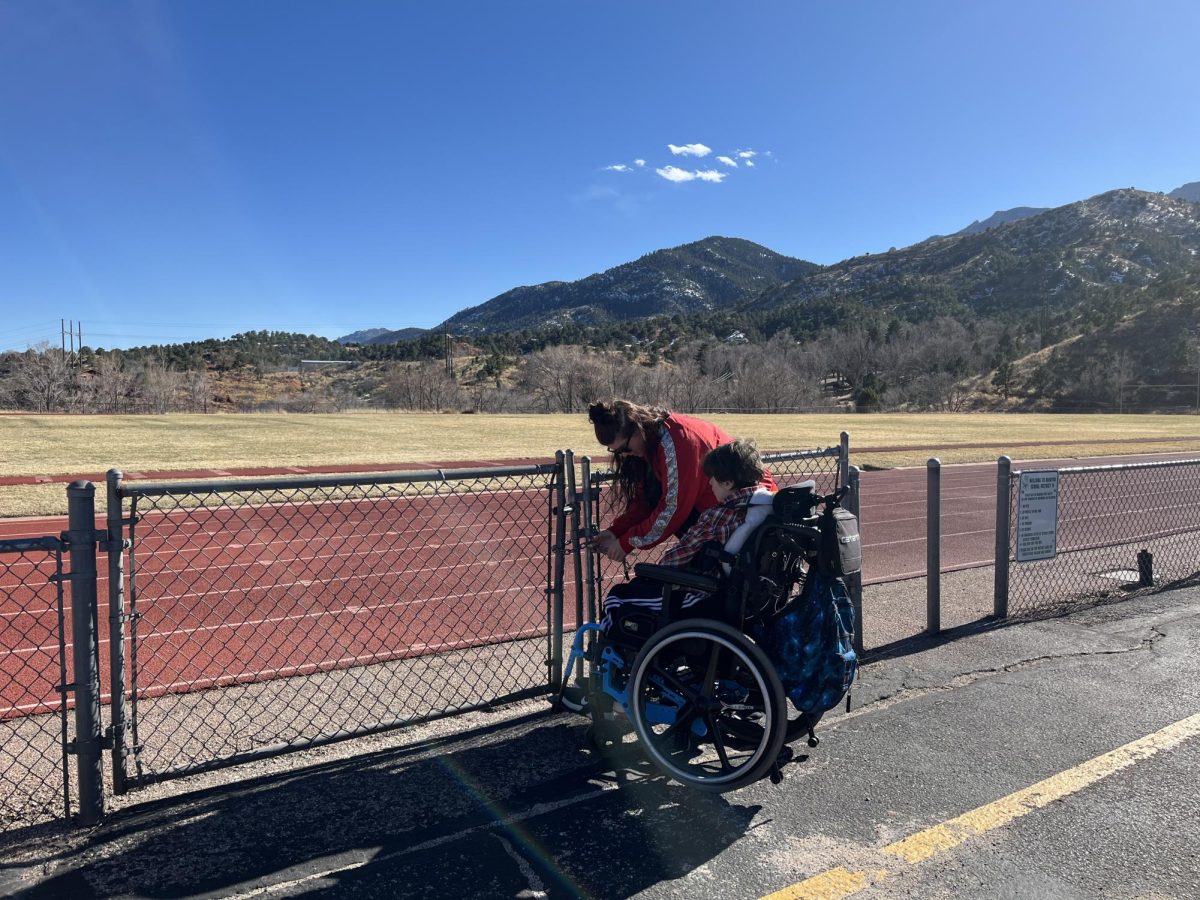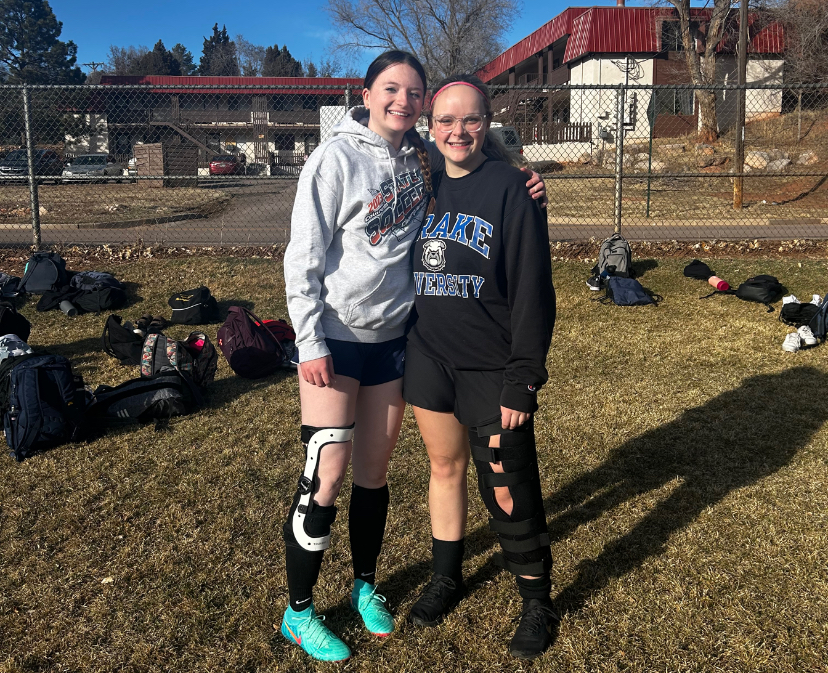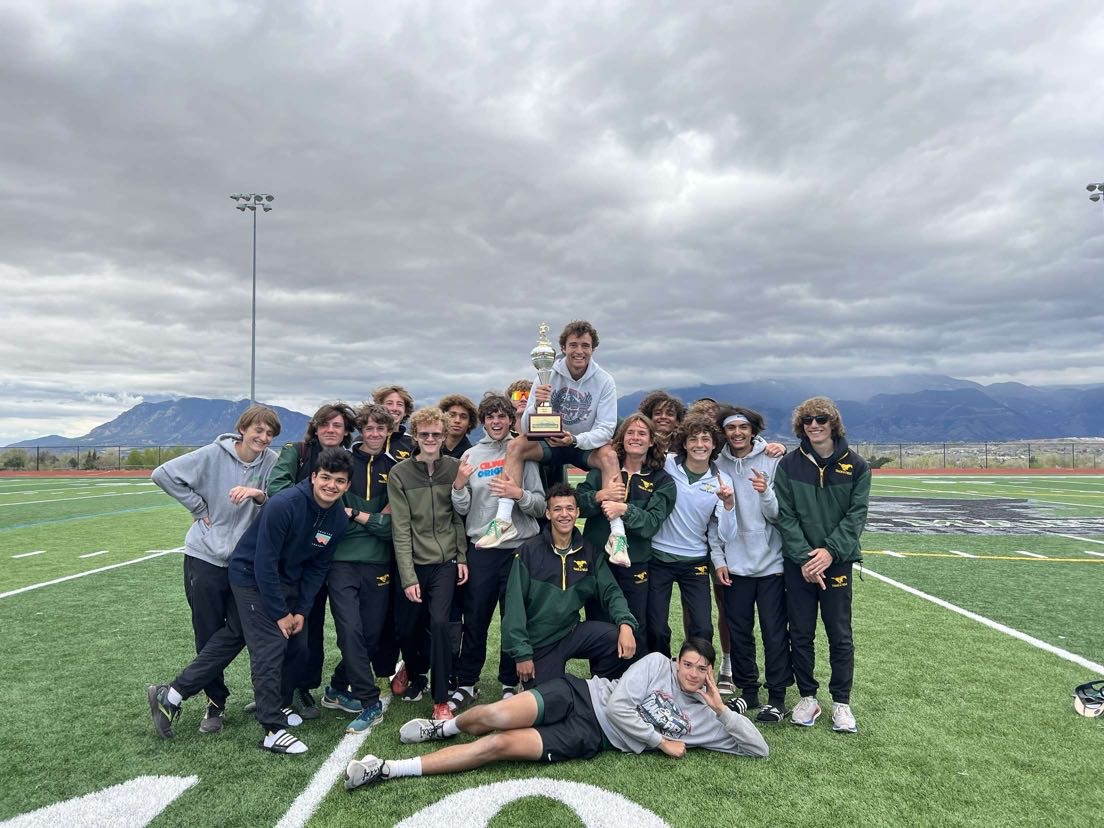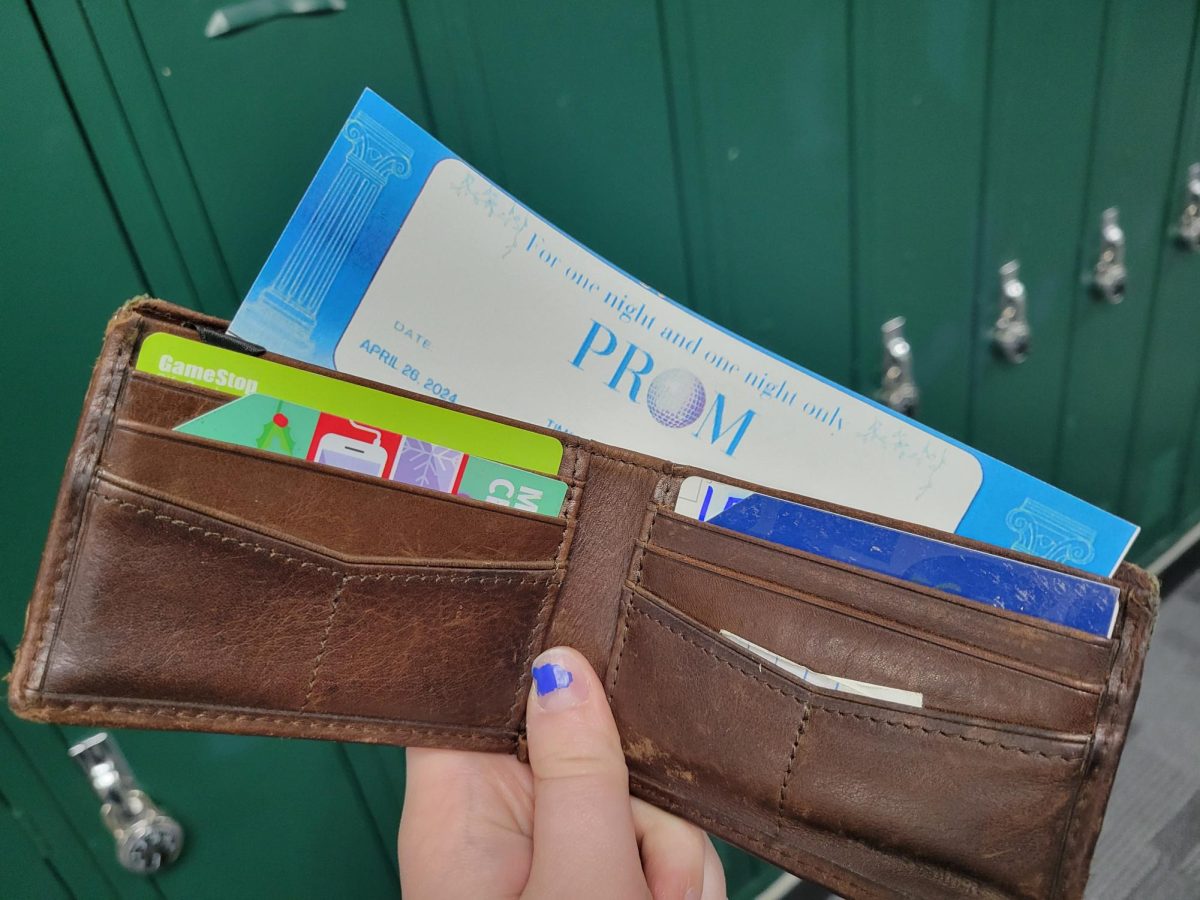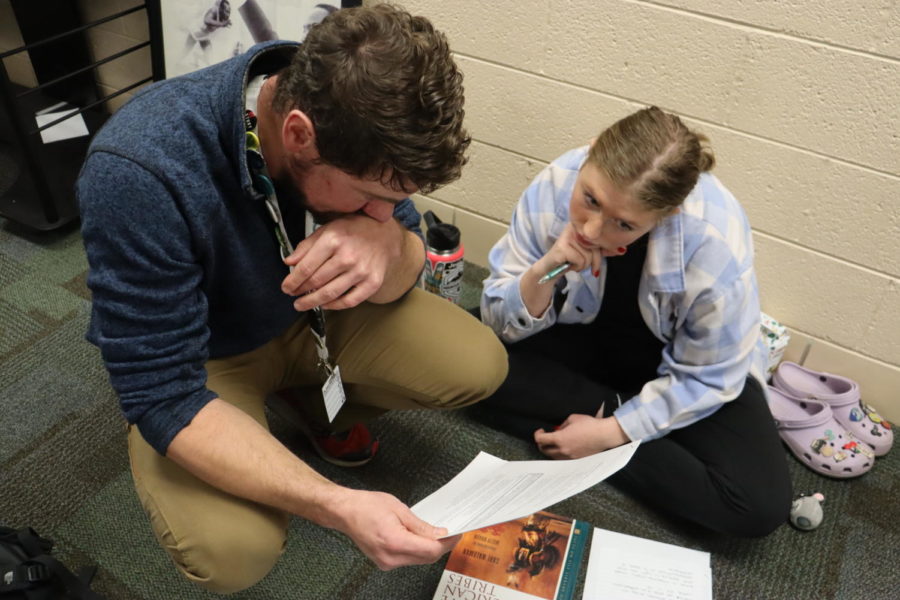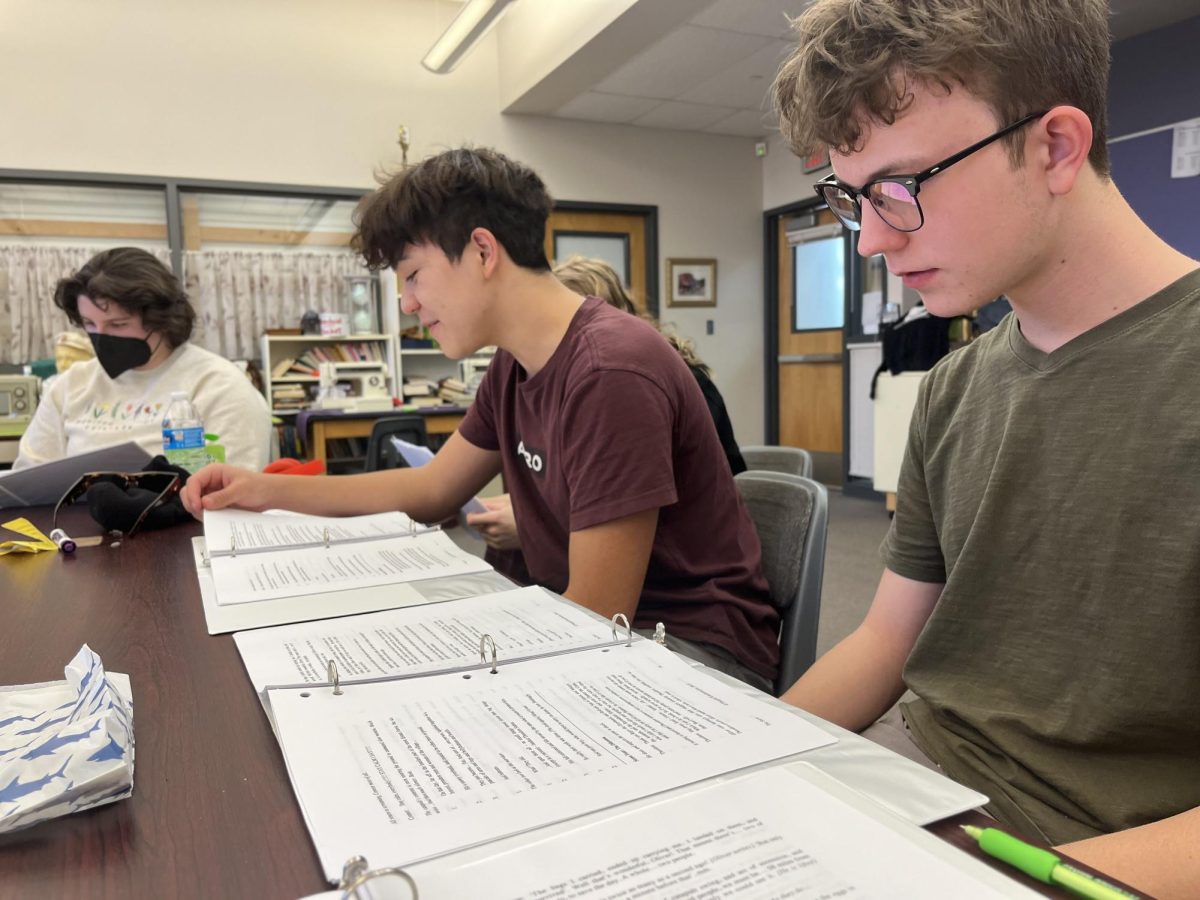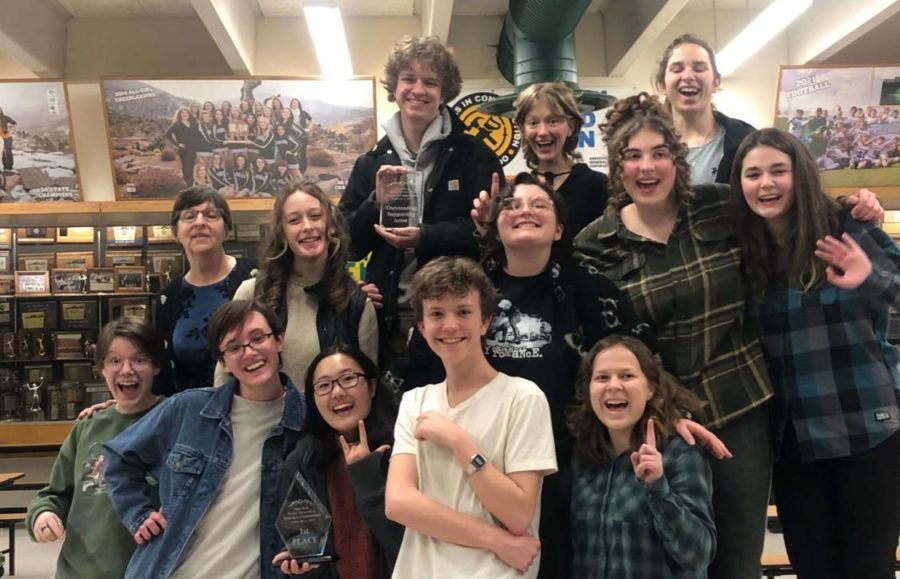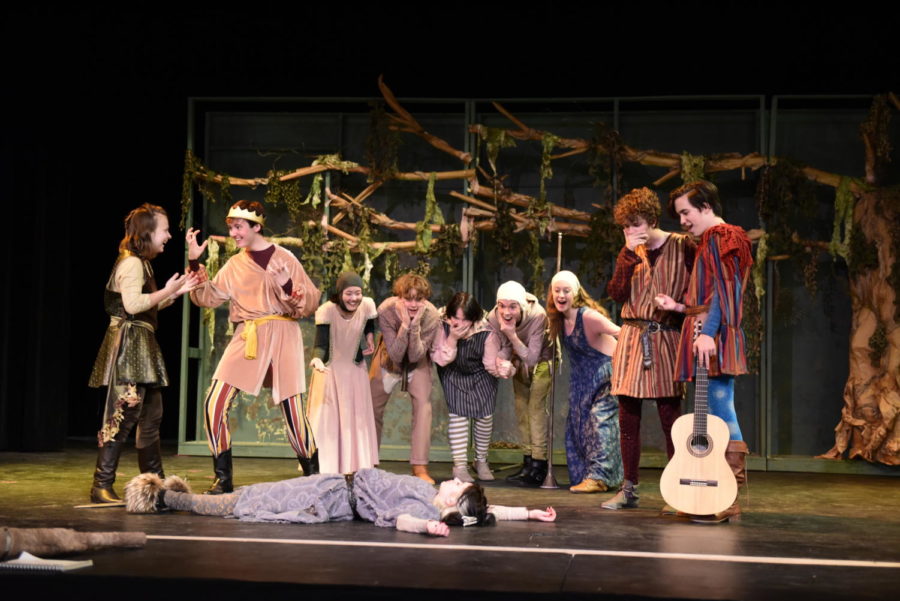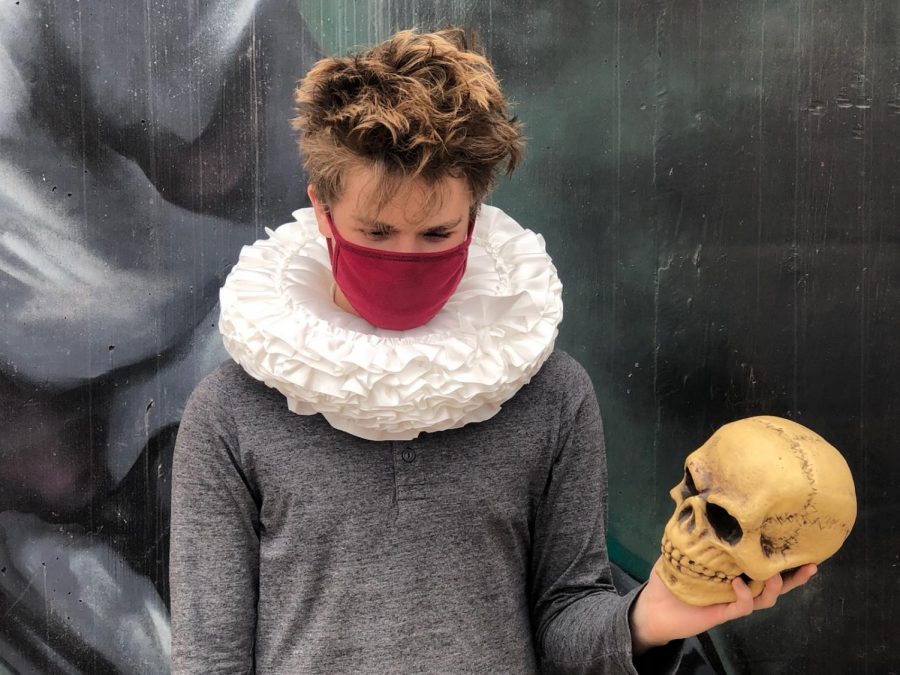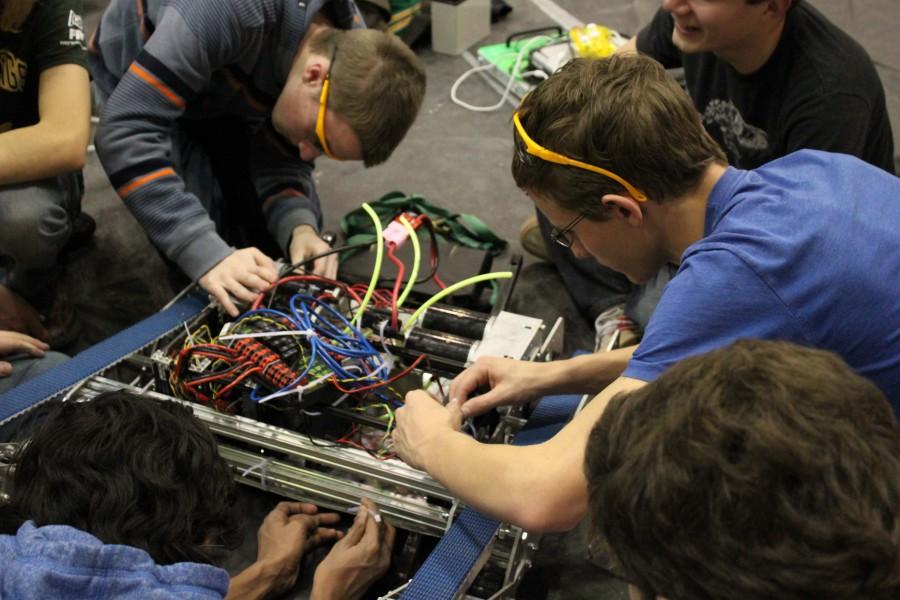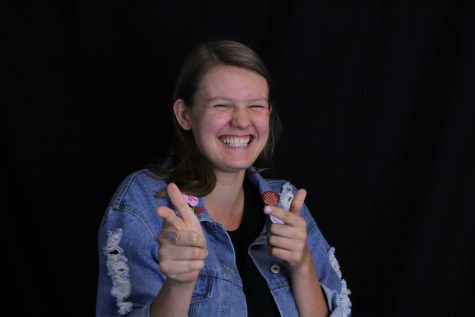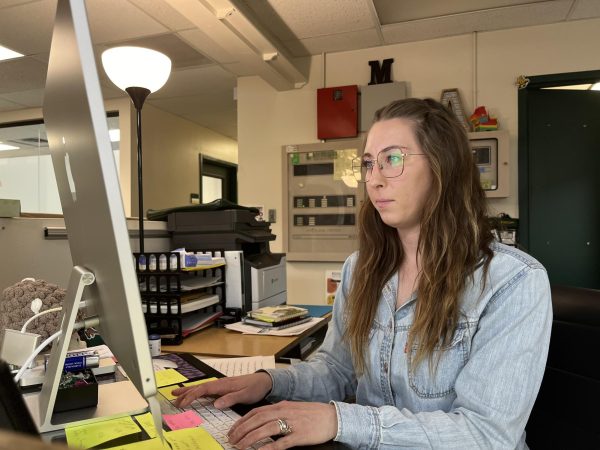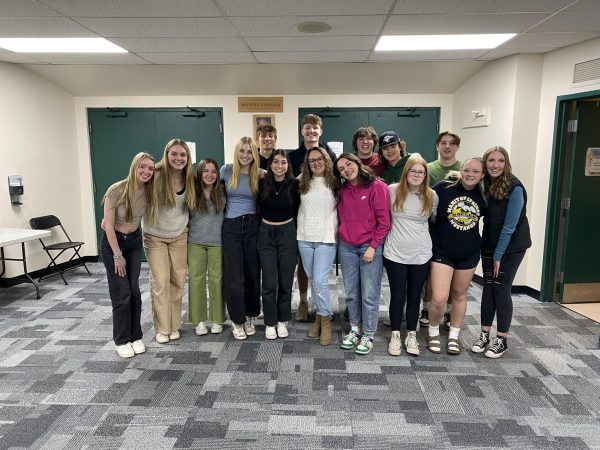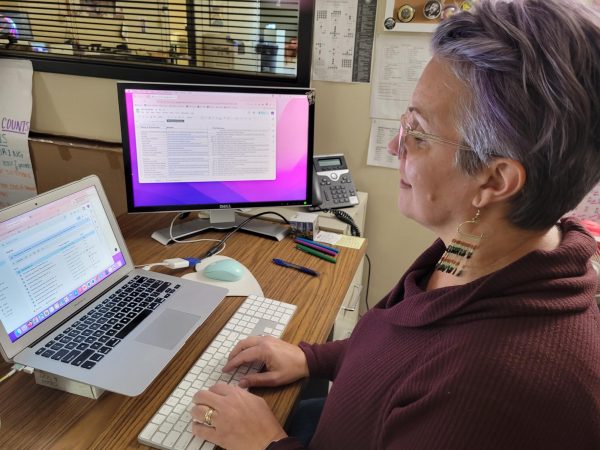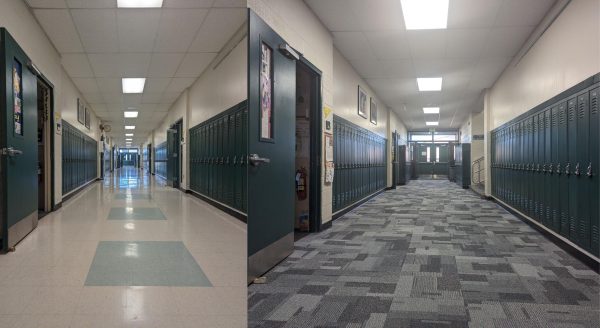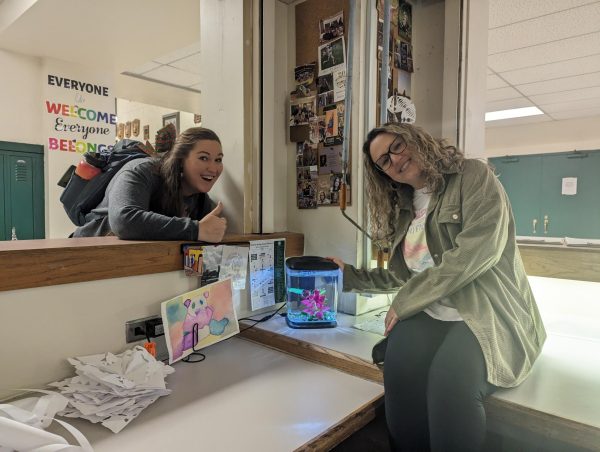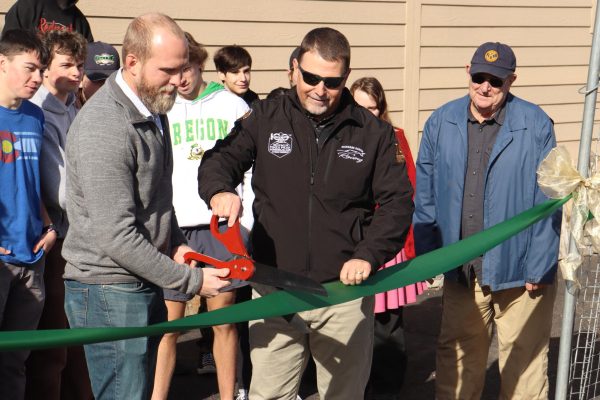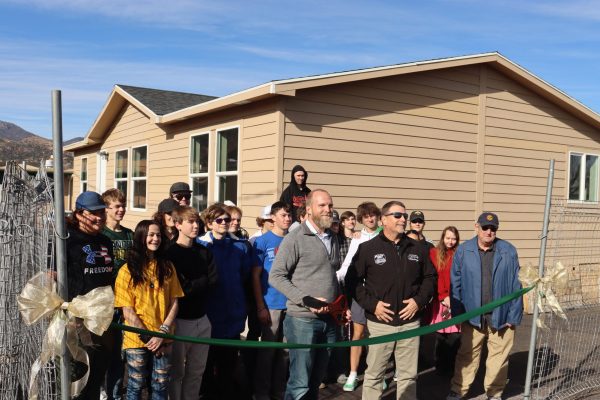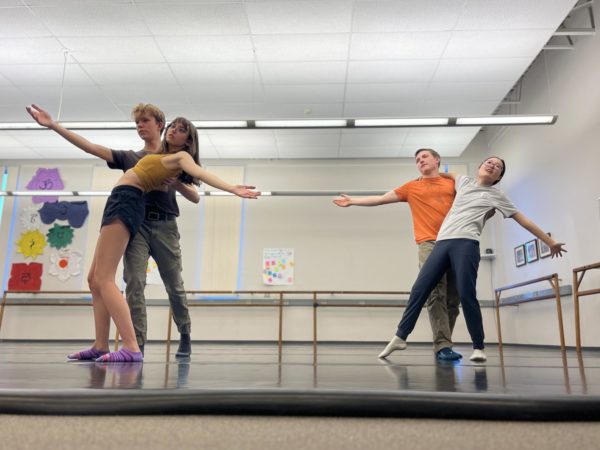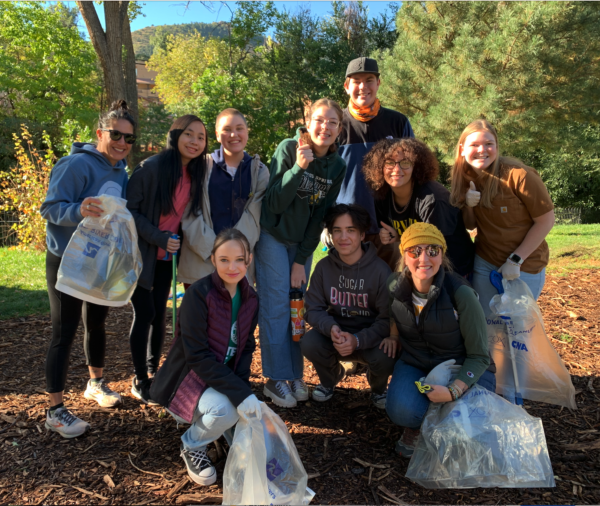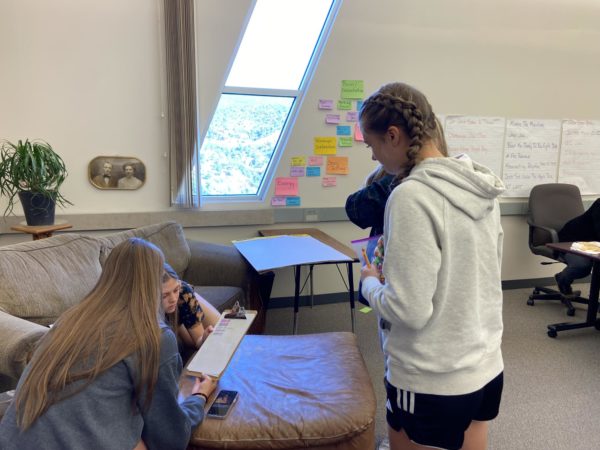Pakistani Exchange Student Talks MSHS Robotics
March 4, 2016
The Robotics club is a group of very dedicated students involved in STEM education. They have a mix of intense practices and even more intense competitions. They have a team of great mentors and teachers, and students who are very hard-working. Three hours of work after school requires commitment and hard work. They have also officially changed their name from the “Bolts and Nuts Gang (BANG)” to “The Steel Mustangs”.
They finished building their robot for competition last Tuesday. They will compete on the 24th through the 26th of March. They are a relatively small team, the second smallest in the entire competition. There is a Robotics club after school from 3:30-6:30, along with a class during fourth block. Krona Emmanuel, a foreign exchange student from Pakistan, participates in both of them.
Krona has been at Manitou since August of last year. He is living with Kelly and Kevin Ladrigan, a couple who have children down at the middle school. He finds that the hardest things about adapting to America, is the food and the language. He has been with the Robotics club since it started, in January. He has only been doing Robotics for a short amount of time, but has always been interested in robots and programming. In Pakistan, there are no extracurricular activities made for after school. Since he’s been with Manitou High School, he has had more opportunities to do what he enjoys, and will take away what he has learned at the club in his everyday life.
It’s a huge challenge to do both the Robotics class, and the club, seeing that they meet for three hours everyday except Sunday. “(Robotics) was a really big commitment. I was here till 6:30, and I’ve never done that before. Like, after school activities aren’t in Pakistan, so there’s a real big commitment. We worked hard, and yesterday was the final day, so we of built it, and we know we’re going to preform well,” says Krona.
Krona is a Junior, and will go back to Pakistan by the end of the school year. In Pakistan, you go up to 10 grades of regular school and then continues to the 11th and 12th, which is called the intermediate level. After that, they go on to post graduate studies, and graduate studies. He still plans to continue Robotics the best that he can. He says, “I want to go into car designing and car engineering. It’s kind of the same (as Robotics), because cars now a days have autopilot and stuff. So it’s kind works like robotics, but they’re human controlled too. Both of them have engineering aspects that are related.”
The school has been pushing Robotics classes the past year. They have recently opened a Lego Robotics club at the elementary school, and only added the Robotics class this past semester. I asked Mr. Ryan about why the school was so passionate about the clubs. “The district is into robotics because kids like it, it’s fun to build robots, there’s a competition associated with it, both at the lower end lego league, and at the high school we do the first robotics competition, which is more advanced. There are larger robots, larger motors, more capable robots. First off it’s fun, the second part is it really supports the idea of STEM education. It’s taking what students are learning in science and in math classes, and applying them in an engineering concept. Robotics is just a very good tool for doing that.”
Because of the schools support of robotics, younger kids at the elementary school have chances they wouldn’t have otherwise. More and more children have experiences that are unique to STEM education. Krona is very supportive of this new growth, and hopes it will influence others. “You show up (to Robotics), and it’s like an actual job. You show up and you work hard at something and sometimes you don’t achieve it but you know what, maybe that wasn’t the way to go, or do something better and go in a different direction. It’s about problem solving and it’s about engineering. It’s just so big, and it’s like a real life thing.”
Robotics hopes to do well at the competition, but there are some set backs. Krona says, “We are the second smallest team in the whole competition. We want to win, but because of budget shortages and other things we cannot custom build metal and stuff.” The only sponsor is Mr. Todd, one of the teams coaches. This effects our chances, and we cannot preform the best we can possibly could. There is a bright side though. Another one of the Robotics club coaches is Mr. Revis who is with Boeing. He is a software engineer, and went to Virginia Tech, but graduated and majored from Carnegie Mellon. He has been coaching Robotics for 8, and been head coach for 6 years. He replaced replaced Mrs. MacIvor, a math teacher at the high school, who moved to Japan. He has always been impressed with the team, but especially impressed by Krona. He is coaching a first robotics club, and because of this, the team is payed 10$ every hour that he coaches with them. In the end, the team receives 8,000-10,000$ a year.
Another factor that affects the teams chances, is the size. It only consists of about 11 students. Most teams have more around 40-60 students participating. It is hard to overcome these difficulties, but the team manages to do it magnificently. “We just have to make things work. That means not buying spare parts, not having a second practice robot and no custom cut metals etc.”
The club is a very important and special opportunity for students to be active in what they like. There are countless opportunities for people who are passionate about sports, but much fewer for kids who appreciate STEM education. Robotics has given Krona experiences he probably wouldn’t have gotten in Pakistan. The club and mentors has not only effected him and his life, but everyone who is involved with Robotics. The school is undoubtedly proud of the club, and we wish them the best of luck at their competition.

